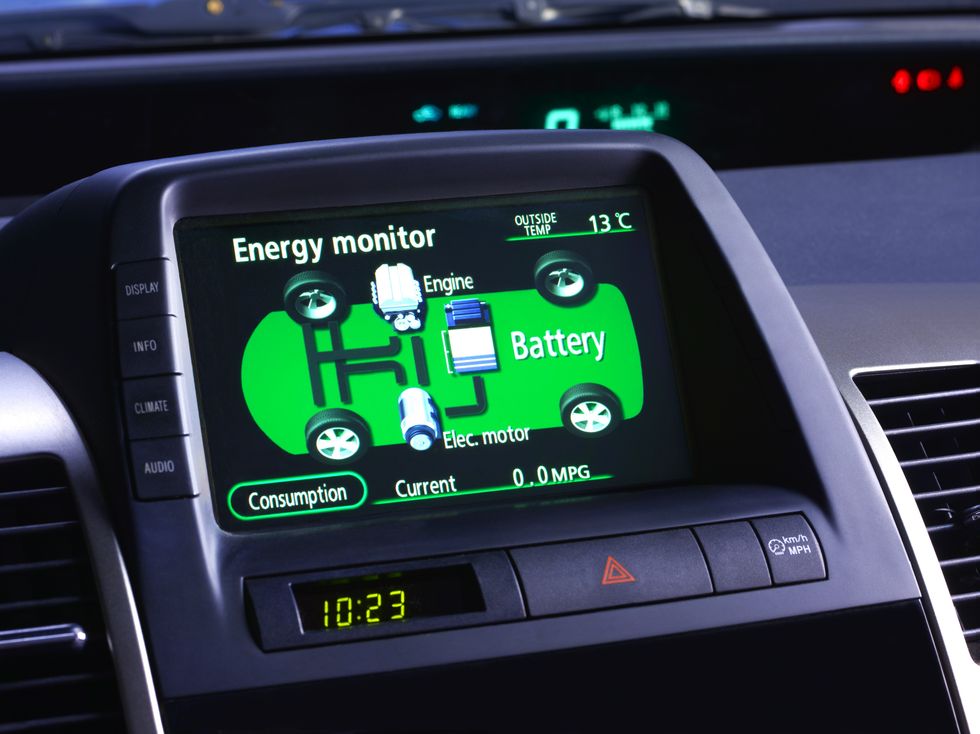New research has found that owners of plug-in hybrid vehicles need to spend an additional £700 a year on fuel when compared to those with electric vehicles.
A new report from the Energy and Climate Intelligence Unit (ECIU) looked into the the claimed miles per gallon figures for plug-in hybrids and used the average gap between claimed fuel economy and real-life economy.
The research found that the UK’s top 10 best-selling hybrid vehicles cost, on average, £500 more to fuel each year than the manufacturers claim.
Major car brands claim that owners of hybrid vehicles will save their owners an average of £1,092 a year in fuel costs compared to equivalent petrol cars, with real average savings of just £593 a year.
Do you have a story you’d like to share? Get in touch by emailingmotoring@gbnews.uk
Hybrid drivers could see massive savings compared to petrol
PA
In comparison, plug-in hybrid vehicles are £672 a year higher than their electric counterparts – showing a dramatic difference in savings for motorists.
Switching from a petrol vehicle to an equivalent electric vehicle will save drivers £1,264 on average, more than doubling their savings.
The study calculated how much electricity the hybrids would be likely to consume from the grid driving the distance, allowing the ECIU to calculate a total, real-life fuel cost.
The report – the real-life costs of fuelling a PHEV – claimed that an analysis of 600,000 cars found that plug-in hybrids burn 350 per cent more fuel on average than what their manufacturers claim.
On the other hand, pure petrol or diesel cars were found to consume just 20 per cent more fuel than claimed by major brands.
Colin Walker, head of transport at the ECIU, said hybrid cars were being hit with a “petrol premium” worth hundreds of pounds a year.
He added: “It’s important [potential car buyers] are made aware of the fact that, according to the data, not only do PHEVs produce 350 per cent more CO2 than their manufacturers claim, they won’t deliver fuel savings anywhere near as impressive as they are being led to believe,” The Guardian reported.
The ECIU found the BMW 3 Series, with claimed fuelling costs of £514 and real-life fuelling costs of £1,269 – a huge £755 cost gap.
Other plug-in hybrids like the Range Rover Sport and Volvo XC60 had the lowest cost gap with additional prices of £152 and £170 respectively.
The real-life savings of hybrid over petrol would see owners of the Range Rover Sport hybrid save £1,720 more than if they had a petrol-powered Sport model.
The Audi A3 (£47), Volkswagen Tiguan (£94), Volvo XC40 (£183) and the Hyundai Tucson (£187) saw minor savings for hybrid vehicles.
Similarly, Ben Nelmes, chief executive at New AutoMotive, added: “This highlights the dangers of passing laws that try to reduce the environmental impact of fossil-fuelled vehicles.
LATEST DEVELOPMENTS:

Plug-in hybrids burn 350 per cent more fuel on average than what their manufacturers claim
GETTY
“This approach will always rely on tests that fail to reflect real-world driving or unrealistic claims by manufacturers.
“The UK is sensibly avoiding this problem by transitioning to a regulatory approach that focuses on cutting out tailpipe emissions altogether and making a clean break with the internal combustion engine.”

